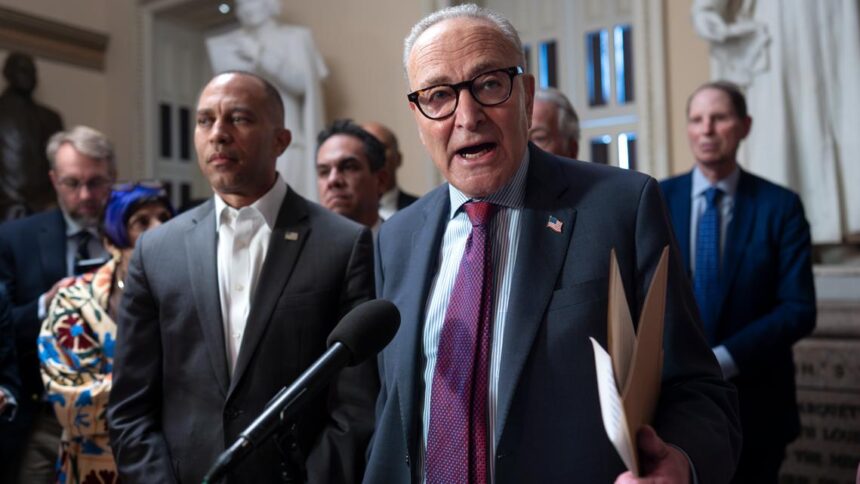Congress is currently grappling with the impending expiration of tax credits that have significantly reduced the cost of health insurance for millions of Americans since the onset of the COVID-19 pandemic. The subsidy program, initially enacted in 2021 and extended in the following year, is set to conclude at the end of this year, and the urgency to address this issue is intensifying among lawmakers.
The tax credits target low- and middle-income individuals who purchase health insurance through the Affordable Care Act (ACA). While there is bipartisan acknowledgment of the importance of these subsidies, discussions have become contentious, particularly as Democrats consider withholding their support for government funding beyond the month unless the Republican party agrees to extend these financial benefits.
Recent feedback from constituents has prompted a notable shift among some Republicans, who have traditionally opposed the ACA. Recognizing that the lapse of subsidies could lead to skyrocketing costs for many of their voters, these lawmakers find themselves caught between party allegiance and the financial burdens faced by their constituents.
The Republican party remains divided, with a faction opposing the extension outright, while leadership in both chambers has responded cautiously, seeking to review potential changes to the subsidy program that could complicate or delay a straightforward extension. Democrats have expressed strong resistance to any alterations, risking a prolonged standoff on this crucial issue.
Senate Democratic Leader Chuck Schumer emphasized the urgency, noting that many Americans could soon be inundated with notifications concerning exorbitant premium increases—potentially hundreds or even thousands of dollars more per year. The current mass enrollment in ACA plans has reached a record of 24 million, attributable to these substantial subsidies, which have effectively mitigated overall costs and expanded access to health coverage for many.
As the expiration date nears, health insurers across the nation are already alerting clients about the anticipated premium hikes, with proposals suggesting increases as severe as 50%. The potential financial strain on households has prompted widespread calls for legislative action, especially from sectors that could be directly affected, such as health insurers and hospital operators, particularly in light of adjustments to Medicaid funding.
The pressure to find a resolution intensifies further as Congress faces a potential government shutdown. While Democratic leaders have asserted that they will not endorse any spending bill that does not include an extension of the health care tax credits, Republicans are still deliberating their next steps, uncertain of which path to pursue as they await guidance from the party leadership.
Amid this legislative tug-of-war, some House Republicans from competitive districts have taken proactive measures, proposing a one-year extension of the tax credits to avert a crisis that could significantly impact middle-class families and small business owners facing the likelihood of increased insurance costs.
Others in the Senate have similarly indicated support for maintaining the subsidies, with concerns expressed about the repercussions of inaction. However, some Republican figures advocate for reworking the subsidy structure to lessen the burden on higher income recipients.
As discussions evolve, the timing of legislative decisions takes on critical importance, with open enrollment for health insurance beginning on November 1. The implications of these impending decisions are poised to resonate across the country, effectively determining the affordability and accessibility of health insurance for millions of Americans in the coming year.






